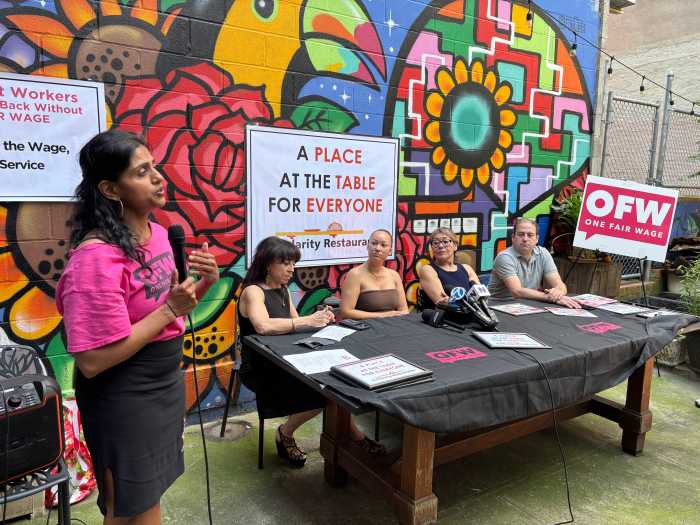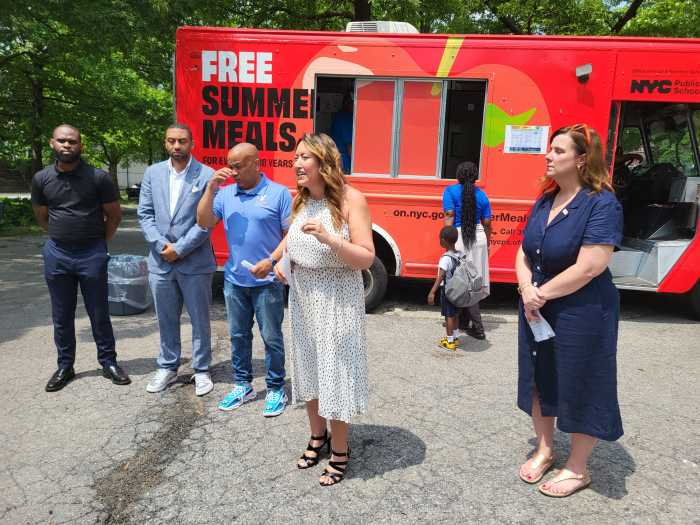Free Irish books up for grabs in Chinatown
In celebration of St. Patrick’s Day, the Irish Arts Center, a midtown-based arts and culture center, will be doling out books at eight transit hubs around the city, including the entrance of the J-Z-N-Q subway lines on the southwest corner of Canal and Centre Streets for a second straight year.
The event, dubbed “Irish Arts Center Book Day,” will take place starting at 7:30 a.m. on Friday, March 16. Other sites include Jackson Heights and Woodside in Queens and Williamsburg and Park Slope in Brooklyn.
The Center will give away as many as 10,000 free books authored by such celebrated Irish and Irish-American writers as James Joyce, Oscar Wilde, Kevin Barry, Peter Behrens, and T.J. English.
“It is fitting that this year’s event will take place in [Lower Manhattan],” said Council Member Margaret Chin. “By sharing in the Irish literary tradition, we learn about the Irish experience, culture, and history.”
City Council Speaker Christine Quinn released a statement, saying, “I encourage everyone to come out and pick up some amazing books by these authors and experience the great contributions they’ve made to the literary community.”
Chin introduces a law about methadone clinics
On Wednesday, March 14, Council Member Margaret Chin introduced a law that would mandate the city to alert local community boards about the siting of methadone clinics in their neighborhoods.
The law would require the city Department of Health and Mental Hygiene to inform Community Board 1 and other boards across the city as well as the City Council when a proposal for a new methadone center is brought to their attention by the state Office of Alcohol and Substance Abuse Services. Currently, O.A.S.A.S. is only required to notify the D.O.H. about plans to establish a clinic, according to Chin’s office.
The impetus behind the proposed law was a 2011 proposal to move a Gramercy Park methadone clinic to 90 Maiden Lane in the Financial District, the Council Member said. Though the public outcry against the proposal convinced the clinic to abandon its plans in December, Chin believes the community’s input was diminished by the process, which allows for conditional approval by the state before the applicant’s presentation of the plan to the community board.
“Given the strong feelings that many communities have regarding clinics that dispense methadone within their neighborhoods, there is little incentive for applicants to inform the public that they are intending to open a clinic,” said Chin. “Local governments know their community best, and they should have an opportunity to comment on whether the proposed siting is appropriate or needed.”




































